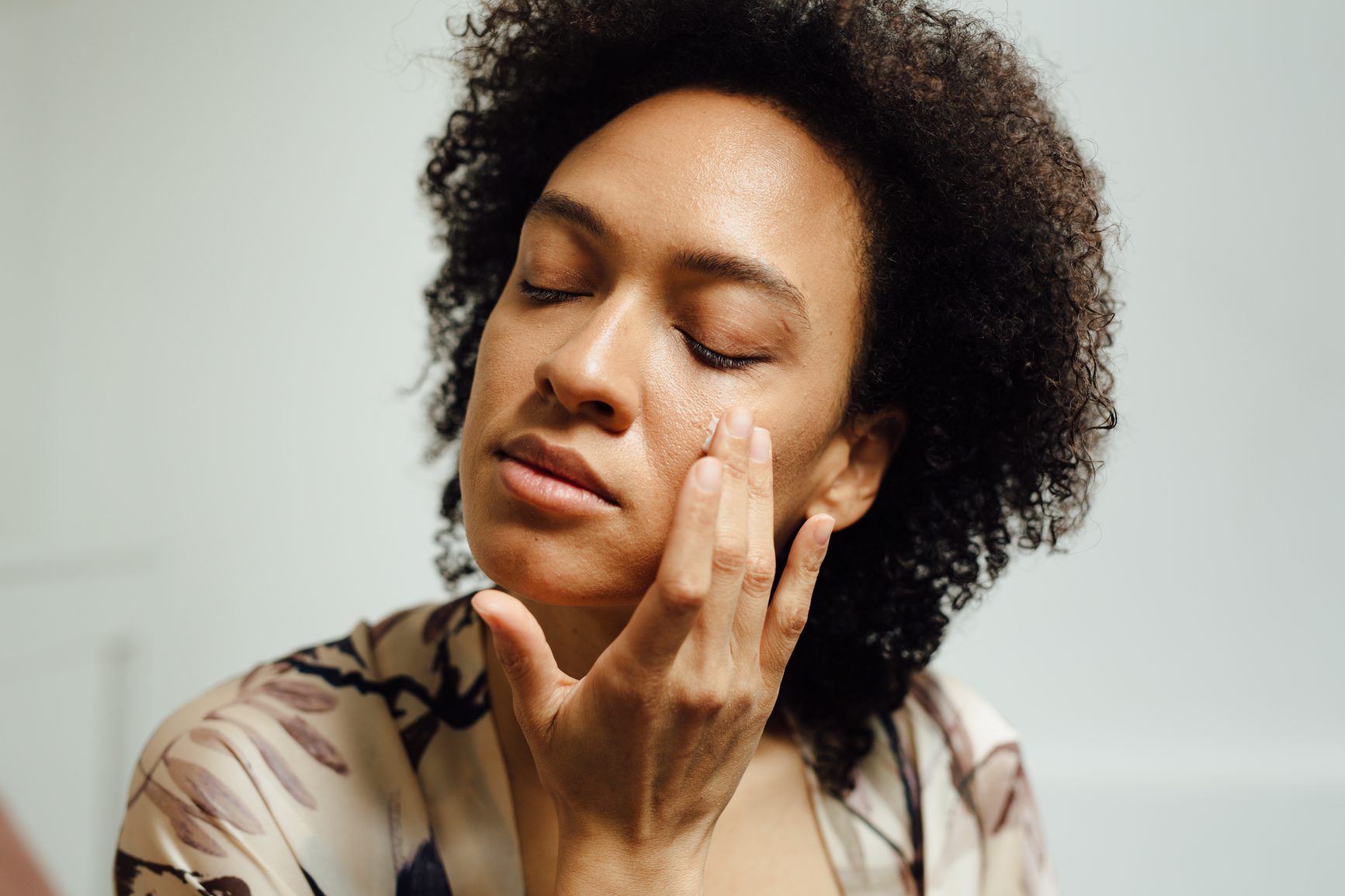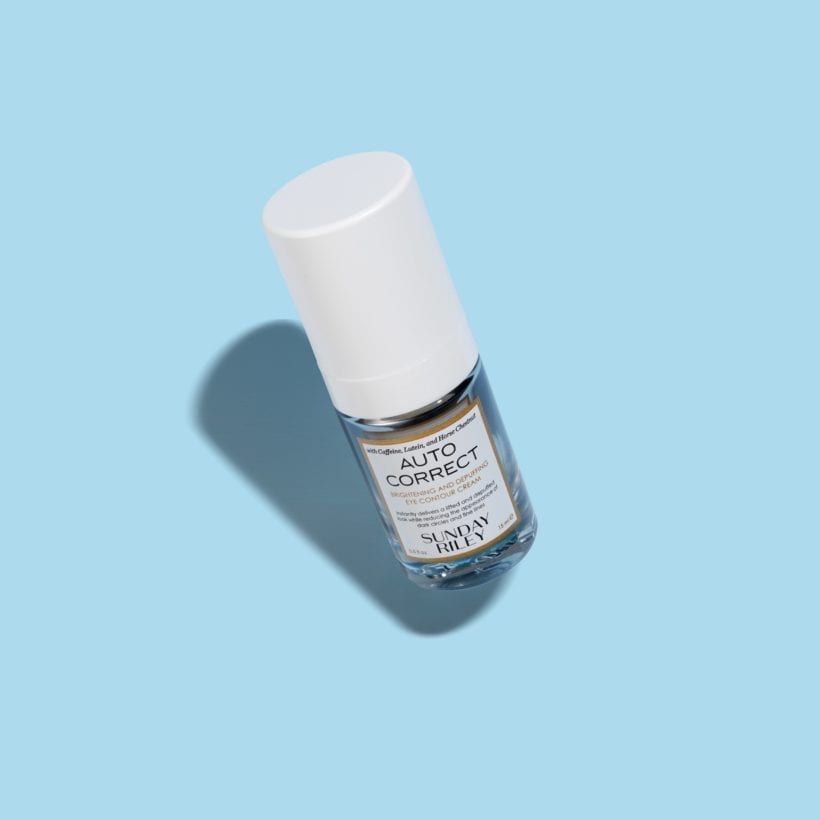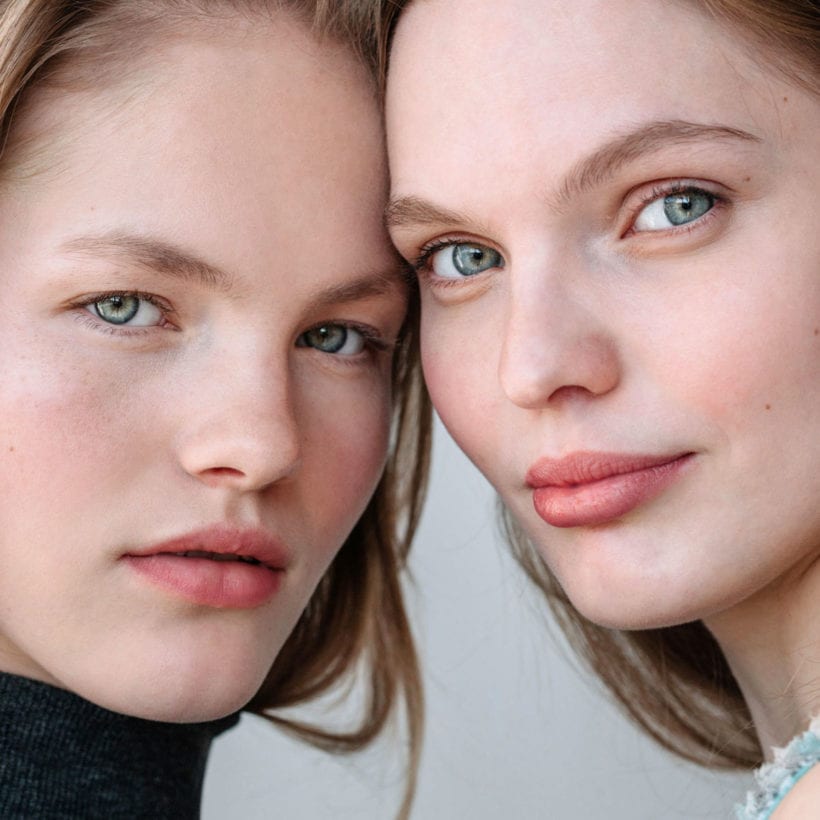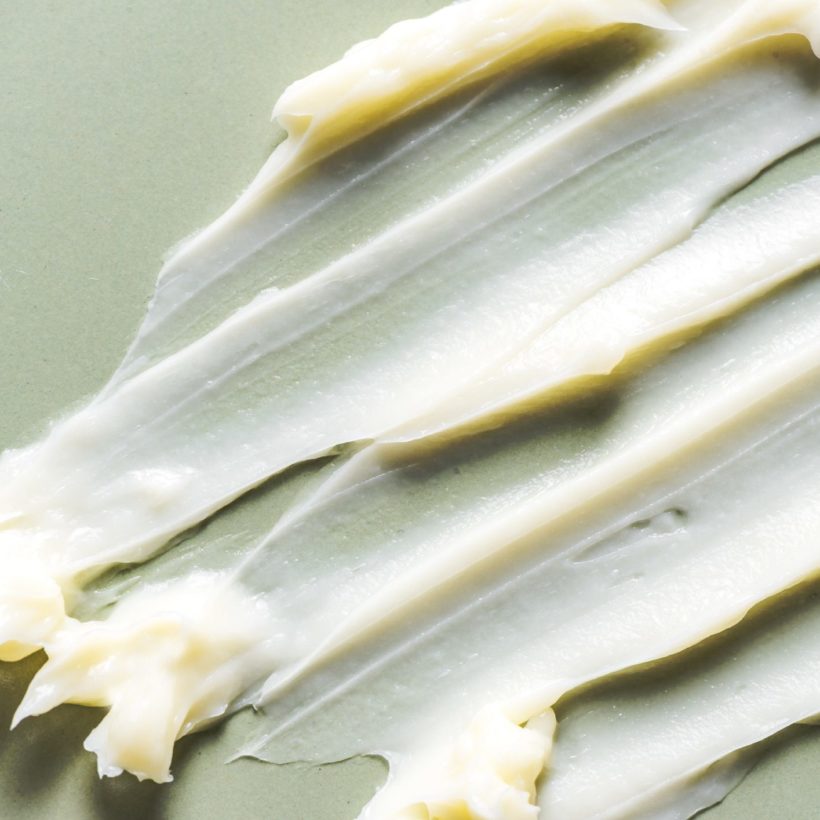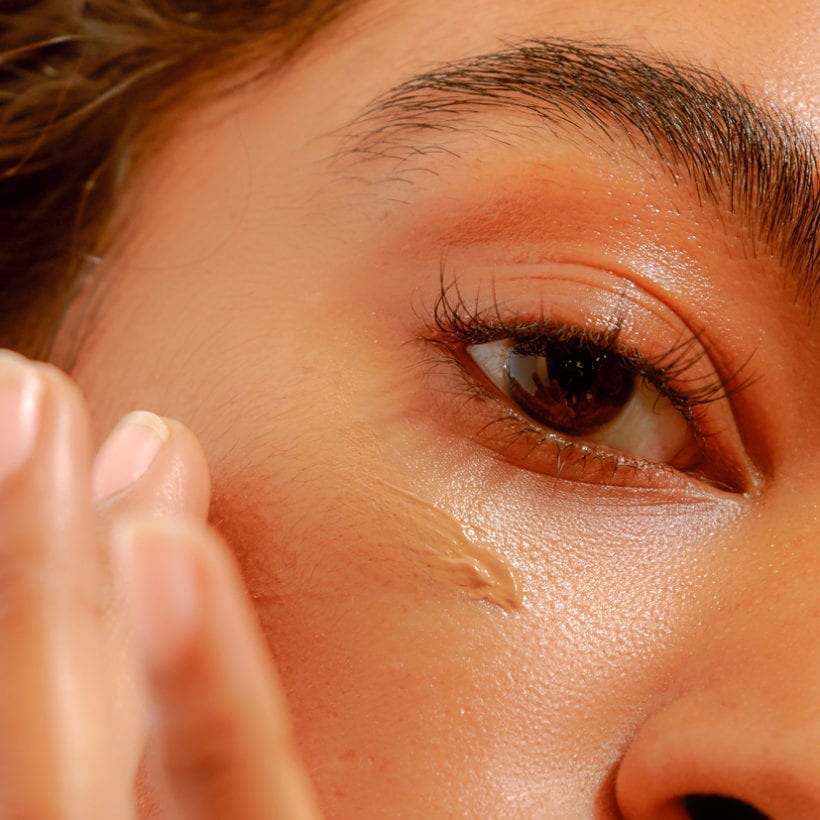After four years of countless Zoom meetings, we’ve all become hyper-aware of our own reflections — every pore, every blemish, every fine line in high definition. If your experience mirrors mine, you may have also noticed an increase in signs of fatigue, marked by dark circles that declare, “I haven’t slept well since March 2020.” It turns out, a global health crisis and the avalanche of stress it triggers will do that to you! Now might be the perfect time to consider an eye cream. Unlike the rest of your face, the skin surrounding your eyes is thinner, more delicate, and often the first to show signs of aging and fatigue, such as dark circles, puffiness, and fine lines. This makes it clear why a regular moisturizer may not be enough. Eye creams are specially formulated to target these unique concerns, offering lighter, more potent solutions that are designed to be gentle yet effective for the sensitive eye area.
“The loss of our natural elasticity, bounce and thickness in our skin is what causes the skin to become weak and frail. This is also when skin presents more lines and wrinkles,” explains Dr. Ava Shamban, M.D., a board-certified dermatologist in California and founder of Ava MD.. But where to start? Retinol eye cream promises to do double duty by helping to reduce those stress-induced dark circles and preventing and reducing wrinkles in the thin skin around your eyes. And when it comes to the latter, it’s best to start early by “prejuvenating,” says Dr. Shamban. “It is a much easier journey when you are trying to maintain levels of skin-plumping collagen in the skin rather than reclaim,” she says.
Meet the Experts
Sunday Riley , CEO, founder and product formulator
Dr. Ava Shamban, M.D. , a board-certified dermatologist in California and founder of Ava MD.
Dr. Hadley King, M.D., a board-certified dermatologist in New York
Wait, what is retinol again?
Retinol is a skincare superstar. ‘I could write a love letter to retinoids, I absolutely love them! A lot of retinols out there can be quite drying to the skin which is partly why some people really suffer when using retinol for the first time. I think we all get a little hung up on percentages and ensuring we are always putting the highest concentrations of active ingredients on our skin. When, in fact, we sometimes need to look at the ingredients themselves, the quality of the ingredient and how they are being delivered into the skin. We really should see topical retinoids as a marathon race and not a sprint, and we need to allow them time to be effective and do what they do best. That’s why, when I was formulating 5 Stars Retinoid+Niacinamide Serum, it was important for me to formulate, yes, with the retinoid complex (5% retinoid ester, 1% liposome encapsulated retinol), but also a wide range of skin-benefiting botanicals like poppy seed extract and ceramides to soothe, smooth, and nurture the eye area. The formulation is also packed with bioactive centella asiatica to support natural collagen production and niacinamide to support ceramide production, brighten the look of discolorations (and possibly dark circles), and soften the look of lines and wrinkles, while olive oil and shea butter help to rehydrate for overnight restoration.”
The reality is, retinoids can actually improve skin texture and thickness — particularly in that thin skin around the eyes.
“Retinols work topically by interacting at the superficial layers of our skin to increase cellular proliferation and turnover ‘revealing’ new skin,” says Dr. Shamban. In the process, they also encourage skin cells to produce more collagen, which helps to fill in fine lines. Dr. Shamban adds that the ingredient is also a “gold standard” in treating pigmentation issues like post-acne scarring or sun damage.
Because of these qualities, retinol has recently become the hero ingredient in eye cream and eye serum formulas. But one note of caution: they’re not for everyone. Retinols shouldn’t be used if you’re pregnant or breastfeeding. There’s a “very rare, very remote” possibility that retinol absorbed through the skin can cause birth defects, so dermatologists strongly advise staying away from them. “It is recommended that all retinol be discontinued at least 30 days prior to the cycle of effort to conceive,” Dr. Shamban says.
So, is retinol too harsh to use on the sensitive skin around my eyes?
Not at all. “There is a misperception that retinol and retinoids will ‘thin’ the skin, so there have been some misguided directions not to use around the eyes,” Dr. Shamban says. “The skin under our eyes is naturally the thinnest, so there may be an unformed assumption that aggressive ingredients have no beneficial business there.”
@ramenasaidwow Some text from the video.
The reality is that retinoids can actually improve skin texture and thickness — particularly in that thin skin around the eyes. Remember the ingredient’s ability to encourage cell turnover and collagen production? “The boost from retinoids helps keep skin density and also increases the natural collagen and hyaluronic acid production, thus keeping the under-eye skin both plump and moist,” explains Sunday.
In a consumer perception survey of participants using 5 stars Retinoid + Niacinamide serum daily, after one week, 96% agreed their eye area skin looked more youthful, and 90% agreed their eye area looked younger and brighter.
Retinol eye creams and serums are “formulated to be used in the delicate eye area, so they are likely to be rich with moisturizing, anti-inflammatory and skin-soothing ingredients,” says Dr. Hadley King, M.D., a board-certified dermatologist in New York.
How does retinol eye cream help my dark circles?
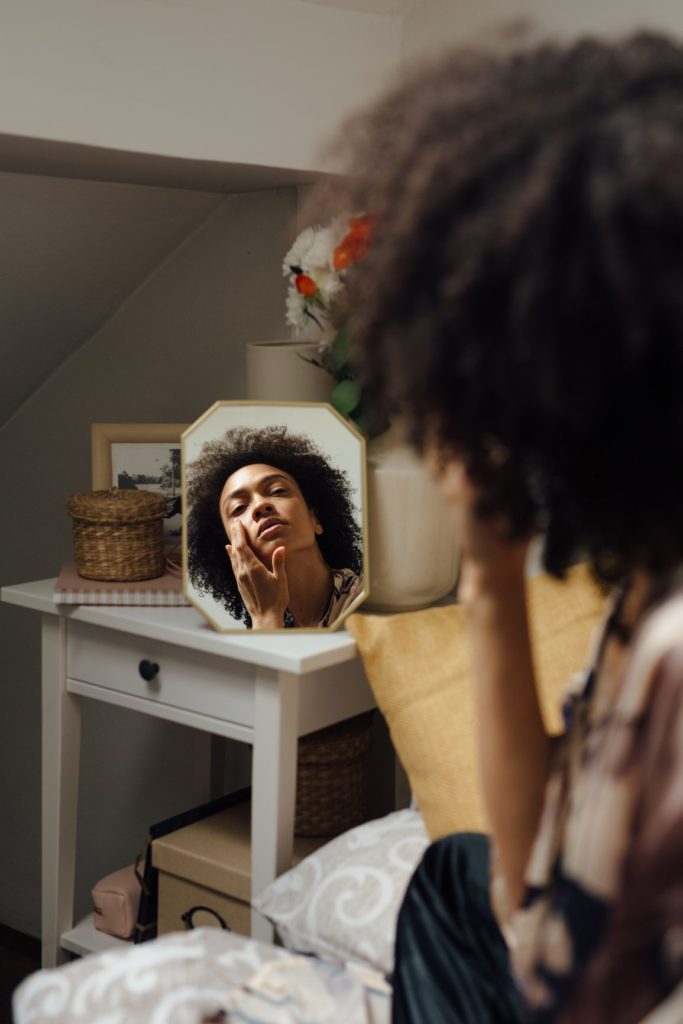
If you’ve ever dealt with dark circles, you know they’re notoriously hard to shake. But retinol can help — depending on what’s behind the issue.
In cases where dark circles are caused by pigmentation or thinning of the skin, “retinol can have benefits by boosting collagen, elastin and supporting skin thickness and structure,” explains Dr. Shamban.
“Topically applied retinoids also influence the function of melanocytes,” which are the skin cells that produce pigment, adds Dr. King. “They block the transport of melanin to [cells on the outer layer of the skin] and diminish the activity of stimulated melanocytes.” Translation: retinol can help prevent dark circles at the cellular level in addition to promoting plumper skin.
However, stubborn dark circles are often caused by actual shadows influenced by bone and skin structure. As we age, explains Dr. Shamban, the skin around our eyes loses fat and volume, creating a “sunken cave-like condition” that has nothing to do with skin pigment. If you are struggling with dark circles and puffiness, try Auto Correct eye cream. ‘This is my go-to and my little hack that I swear by. Besides keeping it in the refrigerator, I love to put two pumps of it and mix it with a little bit of concealer in my hand, and then apply it together, and it keeps that concealer so much fresher so it doesn’t get into your lines,” says Sunday.
What other ingredients should I look for in an eye cream?
When looking for a solid eye cream (retinol or not), derms say you should have one mantra in mind: moisturize, moisturize, moisturize.
“Look for ingredients that are highly emollient and good humectants,” like plant oils (emollients) and hyaluronic acid or glycerin (humectants). Dr. Shamban recommends looking for eye cream labels that list hyaluronic acid, niacinamide or vitamin E. ‘Niacinamide, a powerhouse ingredient, is increasingly favored in eye creams due to its multitude of skin benefits, particularly for the delicate eye area. This form of vitamin B3 is celebrated for its ability to strengthen the skin’s barrier, which is crucial for the thin skin around the eyes that is prone to dryness and irritation. Niacinamide also excels in reducing the appearance of dark circles and puffiness by improving blood circulation and reducing inflammation. Additionally, it helps smooth out fine lines and wrinkles by boosting collagen production, making it an ideal ingredient for those seeking a more refreshed and youthful eye area. Incorporating niacinamide into your eye cream can dramatically enhance skin texture and tone,” Sunday says.
You may also want to grab a formula with calming ingredients like Centella Asiatica or chamomile, adds Dr. King. Centella Asiatica, often referred to as “cica,” helps to soothe and repair the delicate skin around the eyes, which is prone to sensitivity and irritation. Its rich composition of amino acids, beta-carotene, and fatty acids enhances the skin’s hydration and elasticity, effectively combating the appearance of fine lines and wrinkles. Furthermore, Centella Asiatica supports the skin’s natural collagen synthesis, fortifying the skin’s barrier against environmental stressors and preventing premature aging. Its anti-inflammatory effects also reduce puffiness and the visibility of dark circles, ensuring the eye area appears more refreshed and vibrant.
How often should I use retinol eye cream or serum?
“When someone first starts using a topical retinoid, I recommend applying it every other night to see how well the skin tolerates it,” says Dr. King. If you have sensitive skin, start with it once a week. If you’re not experiencing any irritation, you can work your way up to using retinol eye cream nightly. “5 stars is a targeted and gentle anti-aging treatment for the delicate eye area so that you can apply it daily in the evenings, before or after moisturizer. Using your ring and middle fingers, lightly tap a pearl-sized amount onto the eye area and massage outwards around the outer crow’s feet, under the eye, and between brow bone and eyebrow”, says Sunday. We tend to be overly cautious when it comes to using eye cream, tapping in product with the lightest hand possible to avoid rubbing or pulling the sensitive area. But Riley says this might not be the best application technique. “If you have under-eye circles, really massaging your eyes will help circulation flow, and the more you massage, the more this will help,” she explains. “Tap it in and go all the way round your eye.” And yes, that even includes your eyelids.
Regular use of retinol can also help even out skin tone and texture, making the skin around your eyes look smoother and more refined. For best results, it’s important to apply retinol eye cream consistently each night, as this allows the active ingredients to work alongside the skin’s natural repair process, which is most active during sleep.
We only recommend products we have independently researched, tested, and loved. If you purchase a product found through our links, Sunday Edit may earn an affiliate commission.
